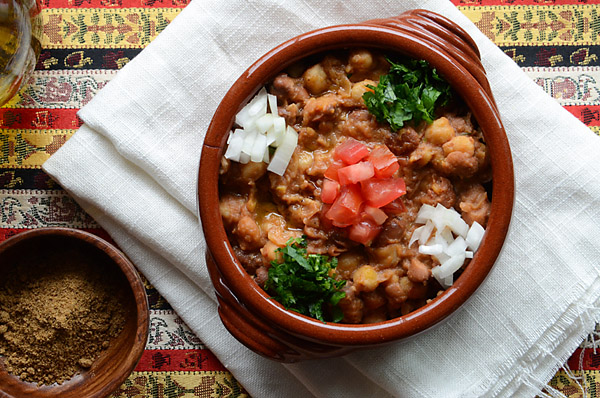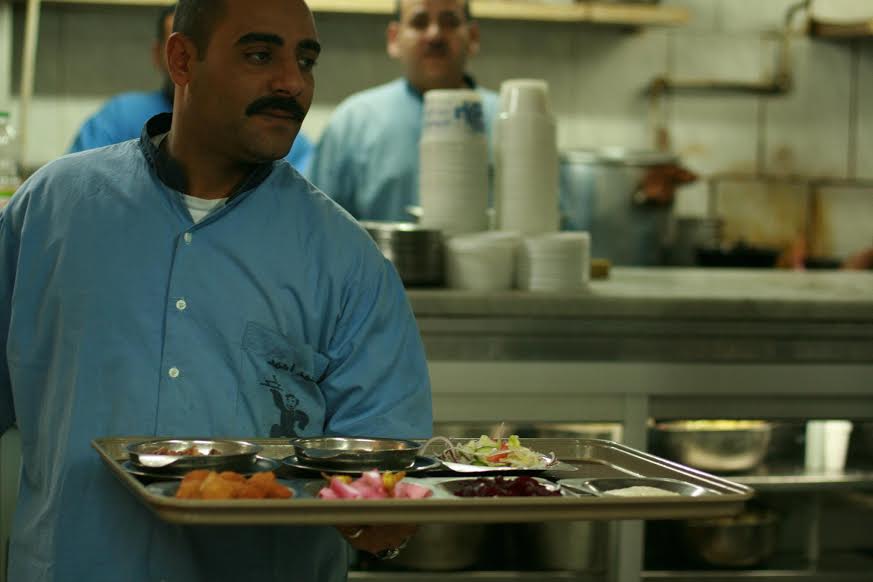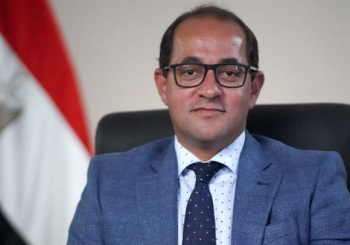As a teenager, Mohamed Ahmed El-Sammak sold fuul on the streets of downtown Alexandria. His big break came in 1957 when he took over a humble joint, then called Benyamin, from a local Jewish family.
The following six decades were spent perfecting a simple, vegetarian offering that has made the restaurant, now bearing his name, renowned across Egypt.
The restaurant is packed day and night with punters hungry for fuul iskandarani (mashed fava beans topped with tahini and finely chopped tomato and cucumber), shakshoukah (egg scrambled with tomato, onion and cumin) and masqa‘ah (an aubergine and tomato casserole).
But local families, tourists and businesspeople were left wondering whether the legendary establishment had had its time. The shutters have been down since the start of the month and a notice, signed by the founder, made the mysterious announcement that the ‘company’s contract had ended’.
Sawsan El-Sammak, the daughter of the proprietor and a partner in the business, promised the restaurant’s long history did not end here.
‘The partnership contract between me, my father and three sisters on the one side and our cousin (Mohamed Ahmed’s niece) on the other, reached its termination on 31 December 2014,” she explained, “but a newly emerging partnership is coming into being,” adding that she hoped the closure would last only a month or so.
Ms. Sawsan rejected a rumour published by the state-owned newspaper Al-Ahram that a dispute between the partners had led to the end of the contract.
‘Trust and cooperation among family members has always been a cornerstone to the success of our long-enduring establishment.’
It has also been announced that wages would be paid in full, ‘according to the provisions of the law’ to dozens of kitchen porters, cooks and waiters, who are renowned locally for a remarkable ability to memorise long orders and deliver them within seconds.
But it’s not just Mohamed Ahmed’s staff who are eagerly awaiting the re-opening; neighbouring businesses have never been so quiet. The street, labelled on some maps as Shakour Pasha Street, on others as Abdel Fattah Al-Hadari Street, is generally known by neither name, for the restaurant is a landmark that every local knows.
“We’ve suffered a lot since the restaurant closed,” said Alaa Mohammed, who owns a mobile phone shop next door.
“It brought a constant flow of local families and tourists into the street. Many people still pop in to ask me about the restaurant and are shocked when they see it closed.”
With the average dish costing 2LE, the rich and poor have always rubbed shoulders at Mohamed Ahmed’s. Among the most distinguished patrons were the Nobel Laureate Naguib Mahfouz and the rock musician Demis Roussous. In 1989 Queen Sofia of Spain visited the restaurant and is said to have spent two hours there, reliving memories of her time at El Nasr Girls’ College just a short drive away.
Now approaching his eighties, Mohamed Ahmed still comes to the shop each morning and, among the clatter of metal dishes and the relaying of orders, works at his desk until the evening prayer is called. Framed above Mohamed Ahmed’s desk is a note written by the comedian Fouad el-Mohandes, whose show Kilmatayn wi Bas (Just Two Words) was on the airwaves for fifteen years. ‘Just two words,’ reads the note, ‘fuul rocks!’
This article was updated on Wednesday 14 January. A previous version misidentified Sawsan El-Sammak as the niece of Mohamed Ahmed and reported erroneously that she was involved in a dispute with her father. The author offers his apologies. Details of the restaurant’s planned re-opening have also been added.







Comments (7)
My grandfather Mohmed Ahmed didn’t sell fool in the streets as a child but he helped and supported his father and that’s when he was ready to take over and make it one of the most important places to visit in all Egypt..I appriciate the article but I would appriciate it more if the writer doesn’t always have to add a touch in writing..because that leads to false information.. Also as my beloved aunt Sawsan El Sammak has said this is not the end of Mohamed Ahmed’s restaurant but soon the new and better start, together with her 3 sisters, father and mother.
[…] article was updated on Wednesday 14 January. A previous version misidentified Sawsan El-Sammak as the niece of Mohamed Ahmed and reported […]